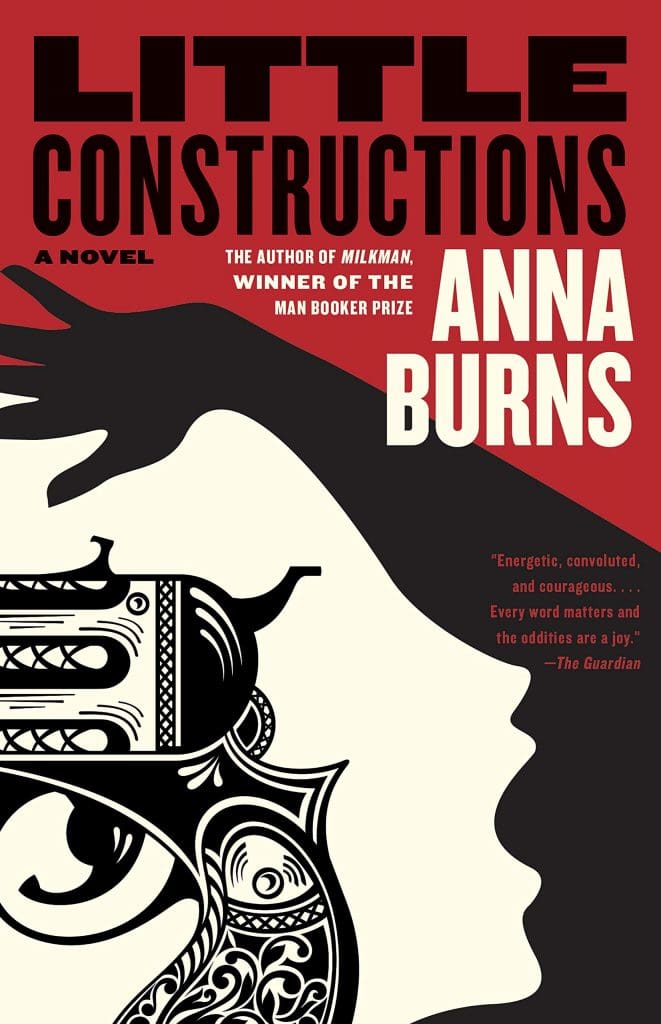Little Constructions (304 pages; Graywolf Press), Anna Burns’ second novel, but her most recent to be published in the U.S. following the success of her Man Booker Prize-winning Milkman, breaks into a run from its opening pages. Things at the former-best-gun shop in the town of Tiptoe Floorboard are looking a bit dicey as two men named Tom are pitted against the angry and quite likely murderous Jetty Doe. Jetty storms in like she owns the place, steals a gun, steals the wrong bullets for said gun, and then storms back out, impatiently hailing a taxi. As Jetty rides away in her cab and the two ruffled Toms take stock in the shop, the narrator tells us how it is that we got here, and where it is that we’ll be going now that our story has been set into abrupt and chaotic motion.
Jetty’s crime is both the tip of the iceberg and the final straw for the Doe gang, a violent and deeply troubled bunch who take what they please, even if what pleases them is disturbing or grotesque. Led by patriarch John Doe, the gang has the run of the town, or so they think.
There are times when the reader might assume they know where the story is going, but they will almost certainly be wrong. Thanks to its unpredictability and the absurdity of the characters, the story pulls us along. But as all of the violence and general unpleasantness pile up, what makes us stay is the narrator. Somewhat elusive but utterly present, the narrator is savvy to the who, what, and when, and is eager to share. Overtly opinionated, stupidly funny, easily sidetracked and incredibly gossipy, this voice effortlessly carries the novel:
Cough. Splutter. Sneeze sneeze. Attention attention.
I had to cough and splutter there to indicate these two people weren’t telling the truth about the subject of their bickering. They were pretending the whole subject was whether guns were good or not. As if that mattered. As if, in the name of God, such a thing as that mattered. I think by now you must know what it is I’m really talking about.
Thanks to the discerning eye of our narrator, we see that the sorry state of the town is largely a consequence of the psychoses of its inhabitants. This has to do with what our narrator calls “knowing without knowing”—the willingness to look away and write off the bad in life, finding it easier to convince themselves of a more digestible reality. Tiptoe Floorboard is a small town that has mastered this technique, to the point that its violence and crime go unchecked again and again.
Little Constructions feels incredibly urgent, like a tale told in seemingly one breath. And the distinct style Burns was noted for in Milkman is present in this 2007 novel. She writes prose that adopts the plain and conversational, but can just as easily turn sophisticated and analytical to the point of convolution. There is something painstaking about the details in this novel, and the desperate need to break everything down is palpable. This intense witnessing and the attempt to understand that follows is what makes Little Constructions feel important. The narrator takes a long hard look at the things these characters have attempted to avoid at all costs, a burden that often carries them to the brink of madness. Unlike her characters, Burns does not shy away from the taboo or the weight of these topics that include murder and sexual assault. She looks at them head on, breaking apart the traumas of this town and examining its vicious cycle of gender violence, abuse, and fear.

